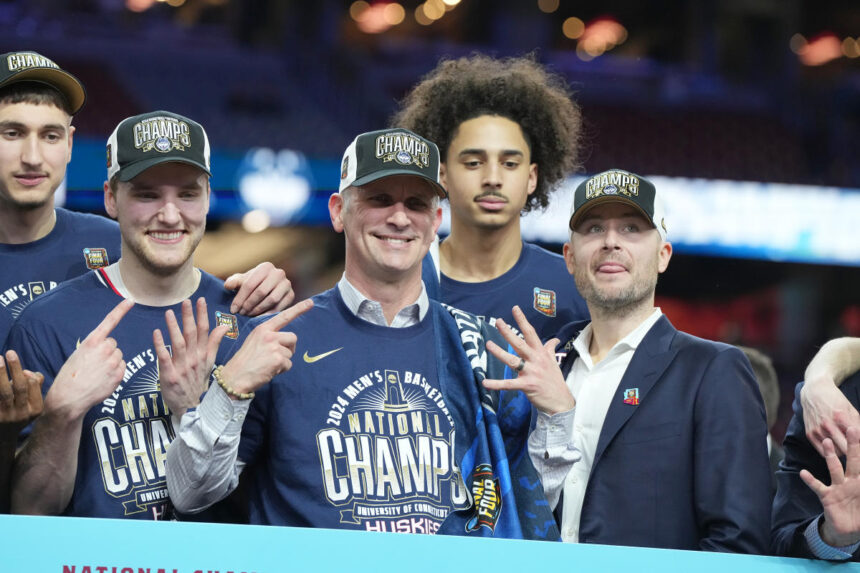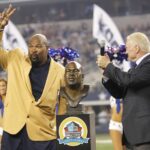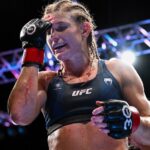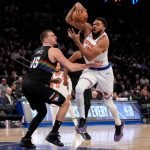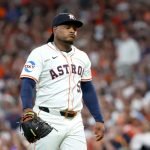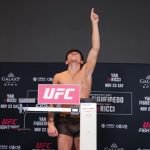“[He] is one of the most accomplished and innovative basketball minds and leaders in the entire game. He has a unique ability to create an outstanding culture that will promote the development of young players and provide a solid structure to the entire program; not to mention the fact that [he] wins everywhere he goes.”
That, more or less, is the framework of the argument for handing over the moon, the stars and a Brinks truck to hire Dan Hurley away from UConn to take the reins of the Los Angeles Lakers — a pursuit first reported early Thursday by ESPN’s Adrian Wojnarowski.
And if it sounds familiar to you, it might be because it was the framework of another argument — one made just over five years ago, when Dan Gilbert and Koby Altman handed over the moon, the stars and a five-year contract with “an average annual value of more than $4 million” to hire John Beilein away from Michigan to take the reins of the Cleveland Cavaliers.
“He’s considered one of the elite offensive tacticians and teachers in basketball,” wrote Wojnarowski of the Cavs’ 2019 pursuit of “culture driver” Beilein.
“He takes players right out of high school and turns them into lottery picks,” a “source close” to the Beilein hire told Chris Fedor of cleveland.com.
“It is no surprise that Koby and his team landed on John Beilein, as great cultures attract others who hold the same values as the foundation for everything they do,” Cavs owner Gilbert wrote in a team statement. “I can’t wait for next season to begin.”
As it turned out, he probably would’ve been fine waiting.
Beilein opened his pro account with 15 losses in his first 20 games and totaled more defeats by mid-January than he’d had in his final three years in Ann Arbor. The tactical excellence that produced so many wins across 27 years on campus failed to translate at the next level, producing the NBA’s sixth-worst offense and second-worst defense at the All-Star break.
The college lifer struggled to connect with the young roster he was hired to develop, engaging in “several skirmishes in public and private with players” — most notably the January film session in which he said they were no longer playing “like a bunch of thugs.” He’d later insist he misspoke, intending to say “slugs” — “We weren’t playing hard before, and now we were playing harder. I meant it as a compliment” — and apologized to the team.
Neither morale nor play improved, though, and a “miserable” Beilein — a March mainstay during his decades of college coaching — couldn’t make it to the end of February. He stepped down during the All-Star break, with a 14-40 record and the Cavs in last place in the East; in the four coaching cycles since Beilein’s exit, no NBA team has gone back to the college ranks to fill its top vacancy.
That’s not to say Hurley couldn’t succeed if the Lakers elected to go that route. At 51, he’s 15 years younger than Beilein was when he made the jump, with UConn’s back-to-back national championships, multiple projected lottery picks and incoming top-10-recruiting class offering support for his bona fides as someone who can connect with NBA-ready talent. His whiteboard acumen has drawn praise from a wide variety of sources … including, famously, one guy that he’d be coaching and another who was reportedly up for the gig.
If Hurley did manage to contend for NBA championships to match the NCAA titles in his trophy case, though, he’d be much more the exception than the rule.
Rick Pitino won 52 games and a playoff series in 1988-89 after making the jump from Providence to the Knicks before promptly going to Lexington. His attempt to repeat the feat when moving from Kentucky to the Celtics didn’t work out nearly as well; he didn’t top 37 wins in parts of four seasons in Boston before returning to college.
Donovan took over in Chicago — following the brief, deeply entertaining, wildly unsuccessful Jim Boylen interregnum — after another college-to-pros hire didn’t pan out. Bulls brass targeted Fred Hoiberg, who’d spent four years as a player in Chicago, after he’d built Iowa State into a top-10 team. (Then-Bulls general manager Gar Forman had been an assistant on the Cylones’ coaching staff while Hoiberg was a star player at the school and later bought Hoiberg’s Chicago-area house.)
But Hoiberg, considered so widely affable throughout his playing career that his nickname was “The Mayor,” couldn’t secure the vote of the most important constituent on the mid-2010s Bulls roster …
… and was out early in his fourth season after posting just one above-.500 season and one playoff appearance. (We’ll always have the Three Alphas, though.)
Hoiberg wasn’t even the first Iowa State head coach to flame out in Chicago. Tim Floyd, fresh off three NCAA tournament runs in Ames, got handed a poison chalice in the summer of 1998, when the Bulls offered him their head coaching job … provided Phil Jackson didn’t come back after a third straight championship season, the one you saw recounted in “The Last Dance.” Jackson didn’t. Neither did Michael Jordan, Scottie Pippen nor Dennis Rodman. Floyd’s Bulls went 13-37 in the lockshort-shortened 1998-99 season; that represented the high-water-mark for his winning percentage across three-plus seasons in the Windy City.
John Calipari, Reggie Theus, Mike Montgomery and Lon Kruger didn’t make it through three seasons. Leonard Hamilton and Mike Dunlap didn’t make it to a second. Hall of Famer Jerry Tarkanian, God bless him, didn’t make it to Christmas. The leap is dark and full of terrors.
The lone legitimate success story in recent memory? Brad Stevens, whom Danny Ainge plucked out of Butler in 2013 to usher the Celtics out of the Kevin Garnett-Paul Pierce-Ray Allen-Doc Rivers era and into a new age of sustainable contention — a project that all involved anticipated might take awhile, as evidenced by Stevens getting a six-year contract’s worth of time to stand the program up. As it turned out, he didn’t need that long: Stevens had the C’s back in the playoffs in his second season, and back to winning 50 games and making the Eastern Conference finals by Year 3. Under his watch, Boston returned to the ranks of serious, consistent contenders for the NBA championship.
But while Stevens stepped down in 2021 as the fourth-winningest coach in franchise history, behind only Red Auerbach, Tommy Heinsohn and Rivers, he also stepped down without ever reaching the NBA Finals, his bids for championships ending in the conference finals at the hands of LeBron James and Jimmy Butler. He has presided over a pair of Finals runs over the past three seasons, including the one set to begin on Thursday night at TD Garden … but he’s done so after moving upstairs into Ainge’s old seat as Boston’s president of basketball operations.
It’s unclear whether Hurley would get quite as long a runway in Lakerland. The pressure to deliver in L.A. — for one of the league’s perennial glamour franchises, helmed by one of the greatest players in NBA history — is immense, and falling short can have dire, immediate consequences. After all, by taking the job, Hurley would be replacing a coach who was shown the door a season after making the Western Conference finals in Darvin Ham, who himself took over for Frank Vogel, jettisoned two seasons after winning the NBA championship.
It’s possible Hurley’s got precisely what it takes, in both tactics and temperament, to succeed where his predecessors have failed. If he can pull it off, though, it’ll be remarkably, historically rare. There’s only one coach ever who’s won both an NCAA championship and an NBA title: Larry Brown, who reached the top of the mountain with the University of Kansas and the Detroit Pistons.
Those titles were separated by 16 years, three resignations and a firing. Turns out, even the most accomplished and innovative basketball minds don’t really win everywhere they go.




